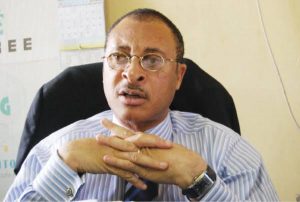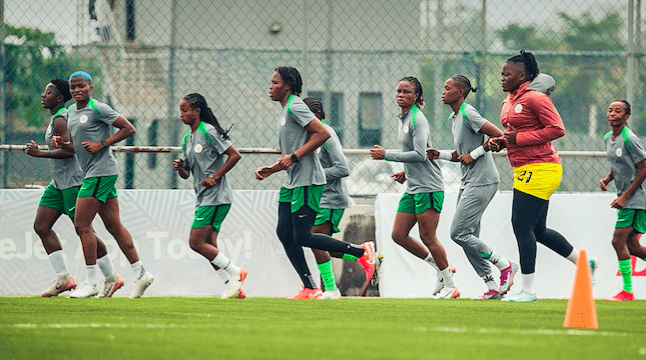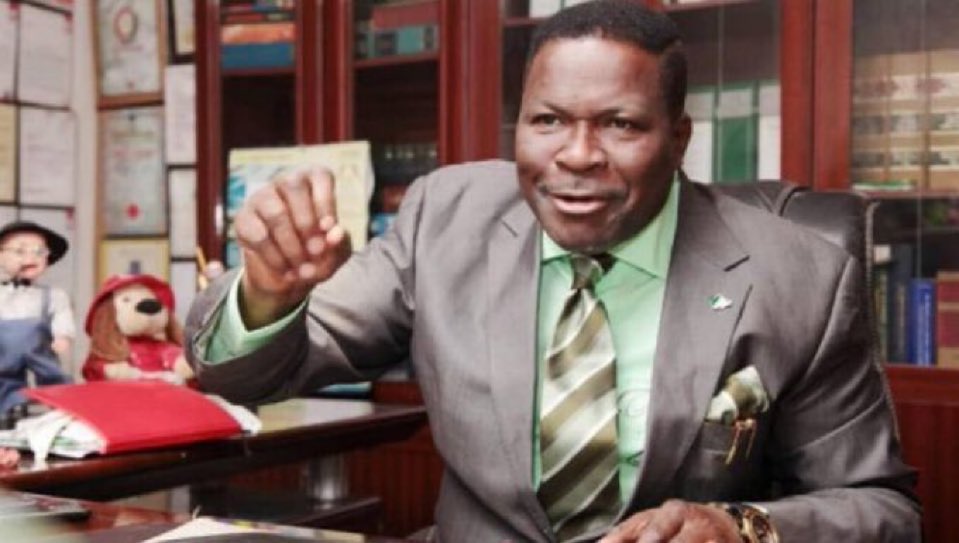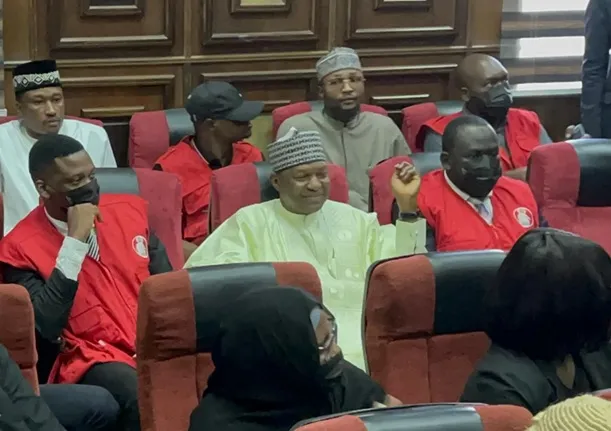“But if you are borrowing and accumulating debts for the next generation and the next generation after them, it is criminal” — Obasanjo
” Nigeria runs the risk of entering another debt trap if it keeps borrowing to fill the needs of recurring expenditure spending”
“The Nigerian economy is not growing in any way or shape that can accommodate its needs, population growth, rates, location on scale of poor countries. It means that in terms of absolute numbers of people living in poverty, that this is one of the most terrible places to live in on earth” — Utomi
Incensed by the mounting debt profile of Nigeria, former President Olusegun Obasanjo has queried the Buhari administration’s quest for more foreign loans, describing it as a grand plan to pile up debts for the next generation.
Obasanjo warned that if the existing debt is left unserviced or unpaid, it might become a problem or serious burden for successive administrations.
“Borrowing is not a problem, what could be a problem would be what one is borrowing for and the plan or capacity to pay back.
“But if you are borrowing and accumulating debts for the next generation and the next generation after them, it is criminal,” he said in an interview in South Africa.
Obasanjo asked:”What are you borrowing for?”
Describing borrowing for frivolous expenditures as foolish, the ex-President also said: “If we are borrowing for recurrent expenditure, it is the height of folly.
“If we are borrowing for development that can pay for itself, that is understandable. Then the payment, how long will it take to pay itself?”
On the humongous debts piled up by the military administrations for him in 1999, Obasanjo recalled that the country was spending $3.5 billion to service debts that kept on increasing.
“When I came into government as elected President, we were spending $3.5 billion to service debts. Even with that, our quantum of debts was not going down.”
Persecondnews recalls that Obasanjo and his Minister of Finance, Dr Ngozi Okonjo-lweala had embarked on extensive travels to beg the Paris Club and other creditors to forgive Nigeria’s debts.
No sooner he left office handing over a debt-free nation than successive administrations started borrowing.
As at June 2021, Nigeria’s debts now stands at N35 trillion and it is likely to rise with President Buhari’s fresh loan request for “critical infrastructure”
Last week, he wrote to the National Assembly for approval to borrow $4,054,476,863 and €710 million in line with the 2018-2020 borrowing plan.
Buhari had explained that owing to “emerging needs”, there is a need to raise more funds for some “critical projects”, while seeking the parliament’s nod to also approve grant components of $125 million.
In June, the National Assembly approved the sums of $8.3 billion and €490 million loans contained in the initial 2018-2020 borrowing plan.
Also commenting on the imminent debt crisis, a Political Economist, Prof. Pat Utomi, said Nigeria runs the risk of entering another debt trap if it keeps borrowing to fill the needs of recurring expenditure spending.

“Nigeria should develop a clear national strategy which looks at how growth can take place in sustainable manner in the economy and then borrow.
“Our country is going through a very trying period. This is a time for statesmen to emerge, not people arguing partisan position on things.
“The Nigerian economy is not growing in any way or shape that can accommodate its needs, population growth, rates, location on scale of poor countries. It means that in terms of absolute numbers of people living in poverty, that this is one of the most terrible places to live in on earth.
“In terms of statistic’s being said, yes, in an absolute sense, the fact of borrowing $4billion is not necessarily something that will kill Nigeria, even though if you look at how much of our revenues going into servicing debt, you have to worry.
“However, there is a converse point here. This country needs to grow like crazy, and it cannot grow unless you invest. The real issue is the targeting of borrowed funds.
Do I see the plans that these borrowings will facilitate the diversification of the economy? My straight answer is No, I do not see the plan,” Utomi said.
The professor of economics added: “Am I convinced that the targeting is enough to drive the kind of growth that will facilitate the economy to grow in a sustainable manner? I have not been given enough information to believe that it is the case.
“One of the reasons Nigeria is where it is today is that oil price dropped during the heat of last year compounded by supply chain challenges brought about by the lockdown which led to revenue shortfall of a significant nature.
“Because we have failed to do something we said we are doing which is to diversify the base of the Nigerian economy.”






















Leave a comment